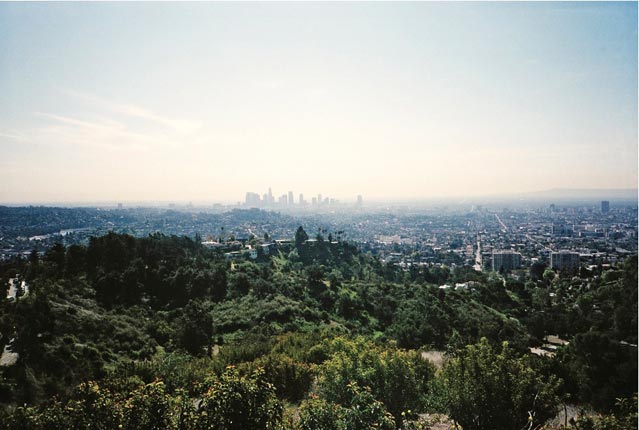IN 2008, WHEN the world’s best athletes descended on Beijing for the Summer Olympics, speculation swirled about whether they’d be sporting a controversial accessory: a pollution mask. Athletes were worried about the negative effects of Beijing’s notoriously polluted air, and the image of track cyclists from the American team stepping off the plane and donning black surgical masks presented the perfect visual kicker for months of news stories hyping the issue. “,” declared a 2007 Time magazine headline. “,” proclaimed another.
The evidence behind these warnings was solid. Breathing polluted air triggers inflammation and oxidative stress that increases your risk of asthma, stroke, and heart failure. Because exercise means deeper breathing, more particles bypass the nasal filtering (a.k.a. nose hairs) that trap noxious particulates, and they lodge lower down in your airway. A ride on a smoggy day makes a bad situation worse.
The question is: worse than what? Sometimes you have the option of heading to the gym or hopping on a treadmill on bad-air days (which usually hit their peak now, in the dog days of summer, because pollutants like ozone require sunlight to form). But other times, you have to decide whether to cancel a soccer game or a road ride. In these situations, is exercising in dirty air worse than not exercising at all? That’s the dilemma researchers are now tackling, and there are hints that the powerful anti-inflammatory effects of frequent exercise counteract the ravages of air pollution.
In the past, most studies of exercise and pollution involved subjects—whether mice or humans—hopping on a treadmill for half an hour while sucking on a tailpipe. Researchers then looked for problems immediately afterward. What those studies overlooked were the benefits of exercise that accrue over time. New research aims to address this. In a report published in an upcoming issue of , environmental-health researcher Rodolfo de Paula Vieira and his colleagues at the University of São Paulo stretched the timeline of their study out to five weeks. Mice that were exposed to diesel exhaust without exercising saw a dramatic spike in lung inflammation and oxidative damage, as expected. By contrast, mice that exercised five days a week during that period were almost completely protected from the pollution damage.
In human studies, researchers have found that daily hospital admissions for respiratory and cardiovascular problems are in perfect sync with air-quality readings. But when you take a longer view, the health benefits of exercise far outweigh the added risk. In 2010, researchers in the Netherlands, using epidemiological data, estimated that the air-pollution effects of switching from a car to a bike for short daily trips in polluted cities would subtract between 0.8 and 40 days from the average life span—but the additional exercise would extend it by three to 14 months.
At the University of British Columbia’s , researchers Luisa Giles and Michael Koehle are leading a study on whether the balance between the positive and negative effects of exercise and pollution depends on how hard you’re working out. Volunteers come to the lab for seven consecutive weeks to cycle at varying intensities. One group breathes air tainted with exhaust from a diesel engine; the other breathes clean, filtered air. Afterward, the effect on both groups’ lungs, heart, and blood vessels is measured. Results aren’t yet available, but the pilot tests were promising. “It came out that exercise was overpowering the effect of the pollution,” Koehle says. “We don’t have enough data yet to turn that into anything, but it was just kind of, ‘Wow.’”
Not everyone benefits—or suffers—equally. “A lot of what happens really comes down to genetics,” says Ken Rundell, a former U.S. Olympic Committee physiologist now with , a pharmaceutical company focusing on respiratory diseases. Both immediate effects like shortness of breath and longer-term risks like exercise-induced asthma seem to depend in part on a set of genes called glutathione-S-transferase. If you notice that your airways become irritated when those around you don’t seem to have a problem, then you should take extra precautions.
But if the choice comes down to exercising in polluted air versus canceling your workout entirely, the better option is to go for the run or ride and find ways to minimize your exposure to pollutants (see “Avoid the Smog,” below). “There may be a marginal increase in risk,” Koehle acknowledges, “but in healthy young people, I don’t think there’s any reason to worry about it. Exercise is such a big hammer that it crushes everything else.”
AVOID THE SMOG: If the EPA’s Air Quality Index measures more than 150—or 100 if you have asthma or other sensitivities—adjust your workout by doing the following.
Avoid the Smog
If the EPA’s Air Quality Index measures more than 150—or 100 if you have asthma or other sensitivities—adjust your workout by doing the following.

STEER CLEAR OF BUSY STREETS: Pollution drops considerably the farther you move from congested roadways. Just 200 yards away, levels are as much as four times lower. Trees can offer protection, too.
START EARLY: Ozone, a key component of smog, is produced when sunlight reacts with pollutants, so levels rise steadily throughout the day—and are at their highest in the summer months. Get your run in first thing in the morning.
WEAR A MASK: N95-rated masks block 95 percent of dangerous ultrafine particles. Caveats: proper fit can be challenging, and many experience restricted breathing.
GET MORE ANTIOXIDANTS: In theory, antioxidant supplements should help guard against pollution-induced oxidative damage. The jury’s still out on whether they do, but it can’t hurt to eat more antioxidant-rich fruits and vegetables, such as broccoli, red peppers, and melon.


